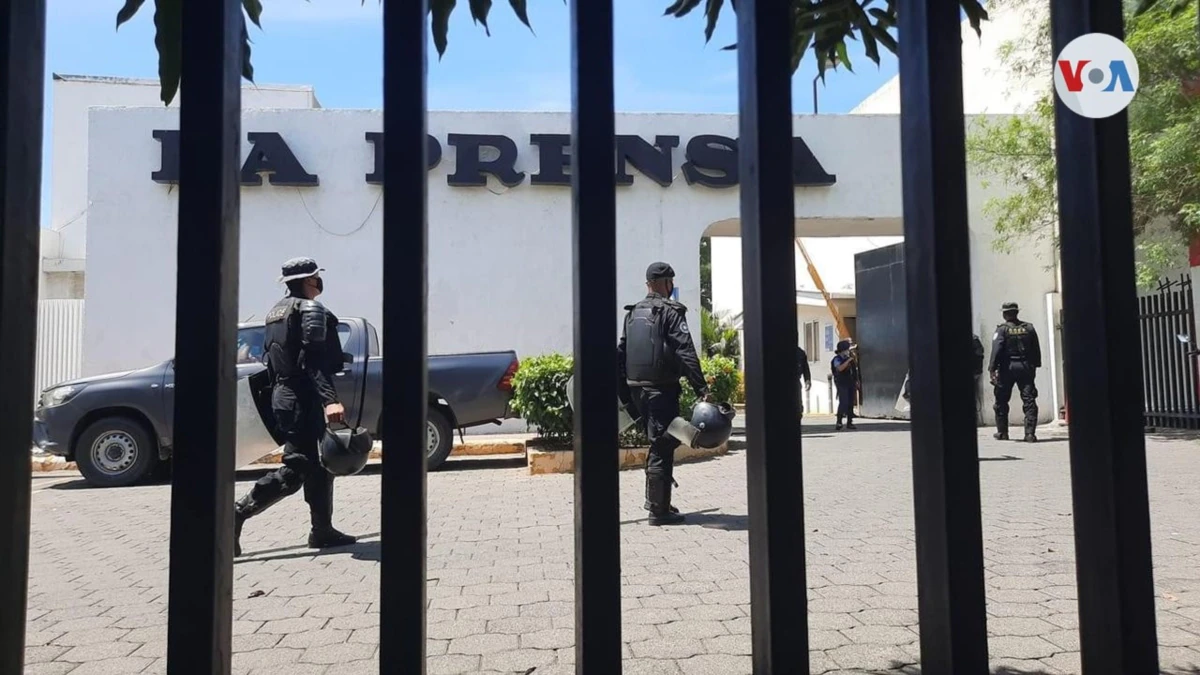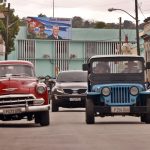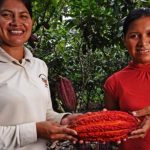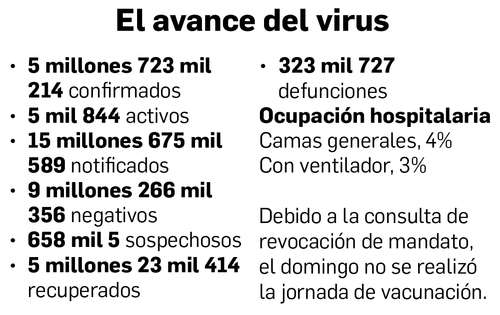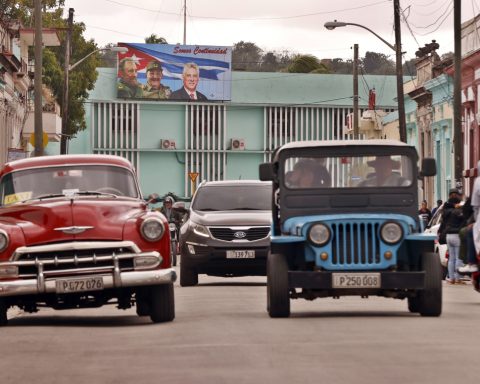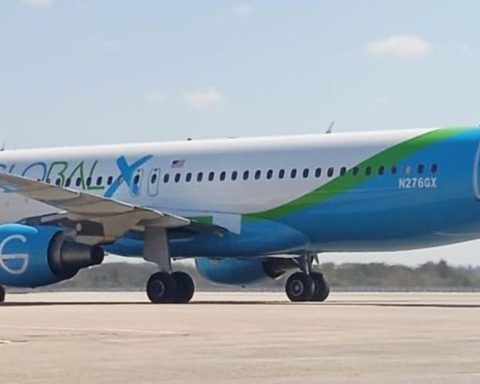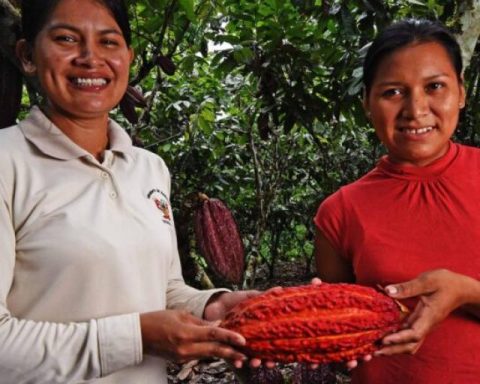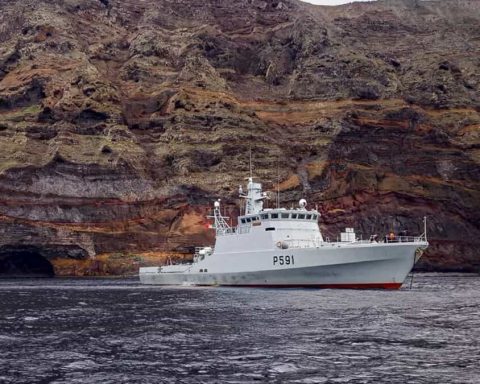The newspaper building the press of Nicaragua, has been “under the protection” of the National Police, after a court order issued by Judge Nadia Tardencilla, informed the voice of america the editor-in-chief of the newspaper Eduardo Enriquez.
The measure comes after the sentence to nine years in prison for its general manager, John Lawrence Holman this March 31 after being found guilty of the alleged crime of money laundering.
The guideline issued by Judge Tardencilla is translated by some lawyers as a “de facto confiscation”similar to what happened with two other media outlets in Managua that remain under police control: the television station 100%Newsdirected by the journalist Miguel Mora, currently in prison, and the weekly Confidentialby the journalist Carlos Fernando Chamorro.
The newspaper’s headquarters the press It remains under the control of the Police since August 13 of last year, when the investigation began. After the raid, the Ortega government argued the alleged crime of money laundering, during a public act broadcast on state television shortly after the building was occupied during a police operation.
The chief editor of the pressEduardo Enriquez, explains that there is no reason for this “protection” because in his opinion, no evidence was presented in the trial of the alleged “laundering” of which Juan Lorenzo Holmann was accused, much less that “that non-existent laundering was related to facilities The Press.”
The occupation of the newspaper not only impacts the operation of the newspaper, but also puts at risk its files stored in its physical newspaper library, where valuable paper editions were found that are practically in the hands of the government.
“The entire physical newspaper library, that is, the paper editions, is in their hands, from the first edition of March 2, 1926 to the last one that we managed to publish on August 13, 2021. I doubt they have enough sense to take care of it properly, you only have to see the state of the Nicaraguan flag in front of the building, which is seen from the street, to judge how the rest of the facilities will be and what is inside,” Enriquez told the Voice of America by phone.
Enriquez assures that anticipating some action against the newspaper, measures were taken weeks before to continue publishing on the digital platform, which is where the journalists continue to work, but affirmed that the condemnation and occupation of the facility complicated the work of The Press.
“The occupation of the press and the threats to the workers left us without entire departments within the company. In addition, the occupation of the buildings prevents normal operations from continuing. For example, we are no longer only unable to publish the newspaper (…) but [que] the company cannot operate the commercial printing press,” Enríquez added.
SIP will manage to interrupt the flow of credits to the Nicaraguan government
The panorama of journalism in Nicaragua is viewed with concern, said Carlos Jornet, president of the Commission on Freedom of the Press and Information of the Inter-American Press Association (IAPA), who assures that the “confiscations” of the media are intended to silence critical voices that can question the official discourse of the ruling couple.
“The intention has been none other than to silence, to silence, to censor and it is a totally illegal action because all the international parameters in terms of freedom of expression and of the press, prohibit this possibility of justice advancing on the assets that they are affected by the production of content”, says Jornet via Skype to VOA.
The expert indicates that based on its Chapultepec Index, through which an annual measurement is made of a series of parameters on freedom of expression and of the press, Nicaragua has always ranked among the last three countries in the region, along with two other nations whose performances show a setback in these democratic indicators: Cuba and Venezuela.
“We believe that this true triangle of Bermuda where freedom of expression and the press is shipwrecked is being carried to the last consequences,” adds Jornet.
The IAPA expert affirms that the trial against Holmann “is serious from every point of view” and has strong consequences because it impacts the last printed newspaper that remained in Nicaragua. For this reason, he indicates that in the next assembly of the organization a chapter will be dedicated to discuss only this case with relatives and colleagues of people “persecuted by the regime.”
Jornet also explained that they are thinking of negotiating with international multilateral organizations the ways to interrupt the flow of credits to the Nicaraguan government “motivated for humanitarian reasons.”
“It is also a way of notifying the regime that the international community is not willing to continue endorsing this type of practice that unfortunately is beginning to be reproduced in other countries in the region and that we would not want it to reach these extremes that Nicaragua has been experiencing since a while ago,” he concluded.
The situation of the press in Nicaragua was complicated as a result of the sociopolitical crisis in 2018 that erupted in protests against the president, however, since his return to power in 2007, a war began to “suffocate” the media critical of his administration.
In fact, a month after Ortega’s return to power, in 2007, the government spokeswoman and wife of the president, Rosario Murillo, established the so-called “Communication Strategy” that established that official information should come out “uncontaminated.”
To achieve that purity, he maintained, they would report only through the media created by the Sandinista government. Since then, the independent press has been prohibited from entering press conferences of state institutions and even events of the powers of the State.
Connect with the Voice of America! Subscribe to our channel Youtube and turn on notifications, or follow us on social media: Facebook, Twitter and Instagram
